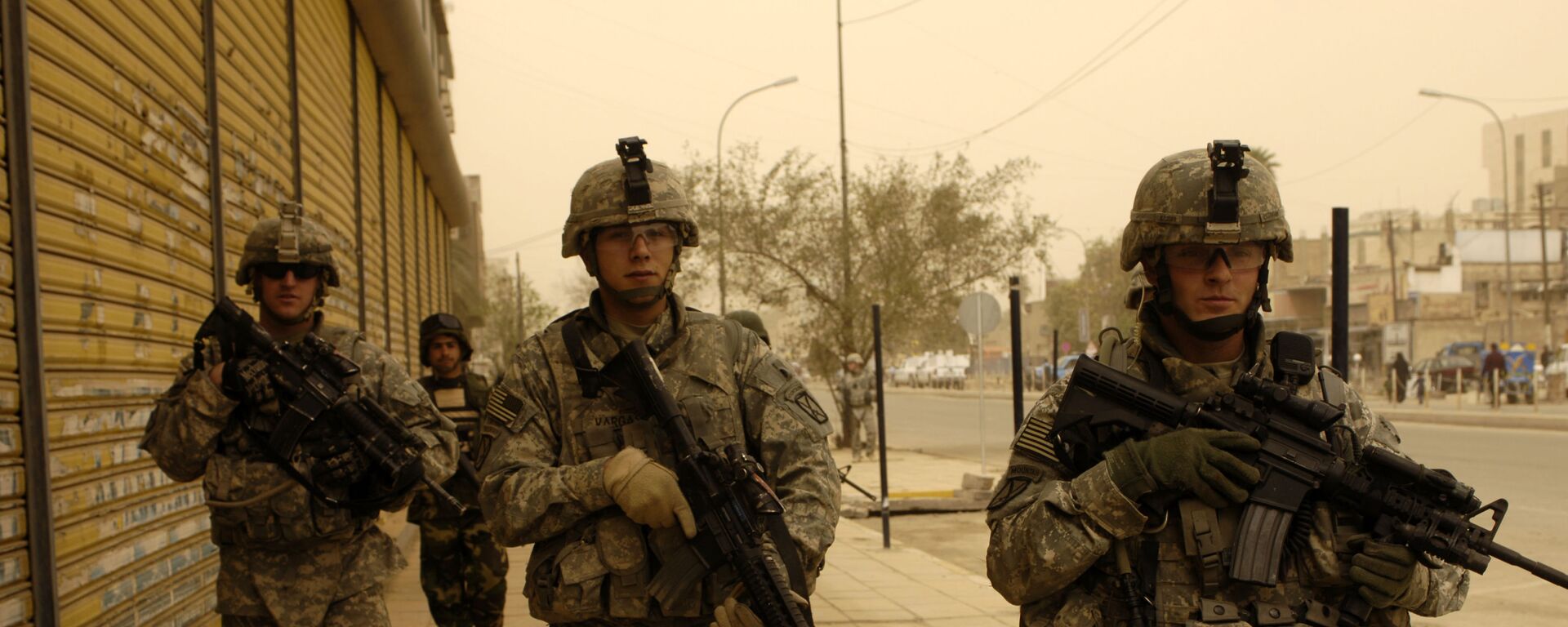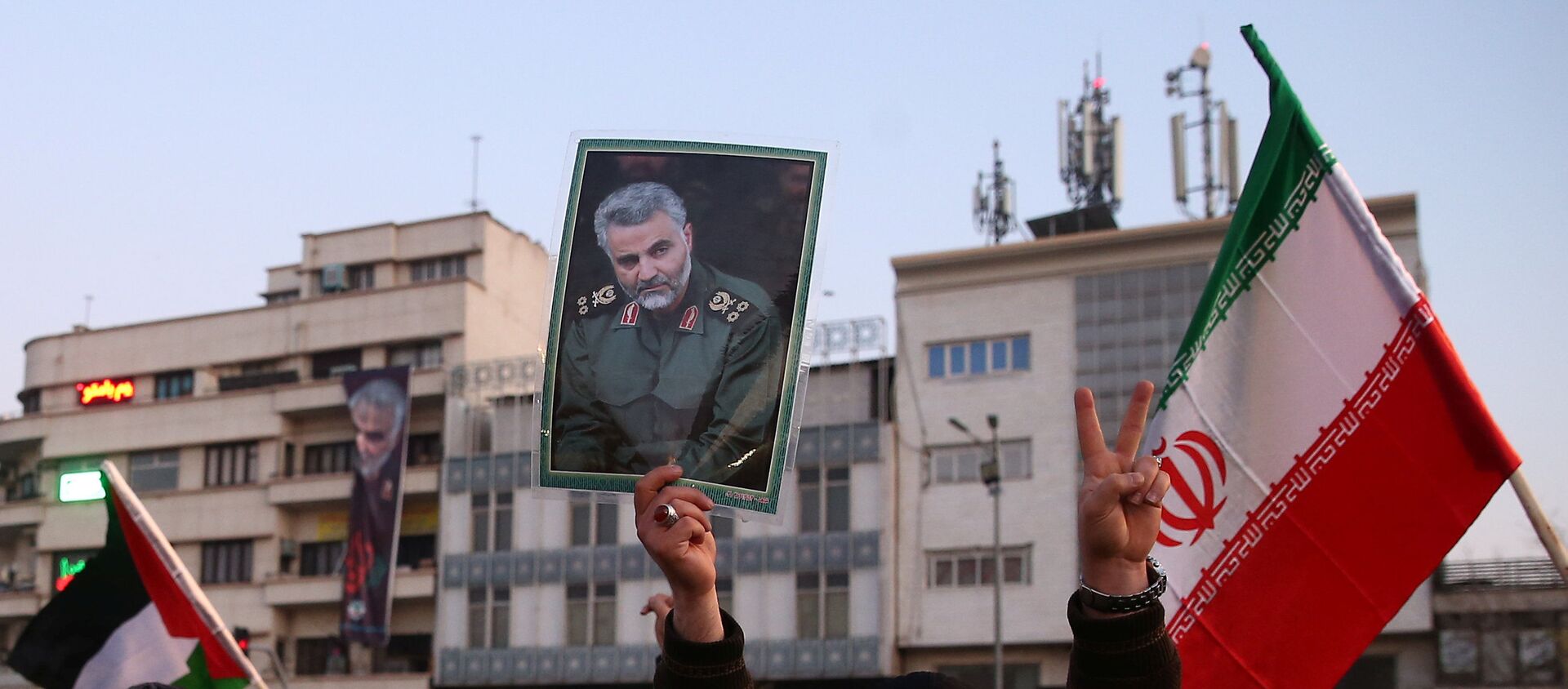All US Troops Including ‘Criminal’ Air Force Must Quit Iraq, Militia Warns as Occupation Rebranded
15:28 GMT 27.07.2021 (Updated: 18:32 GMT 27.07.2021)
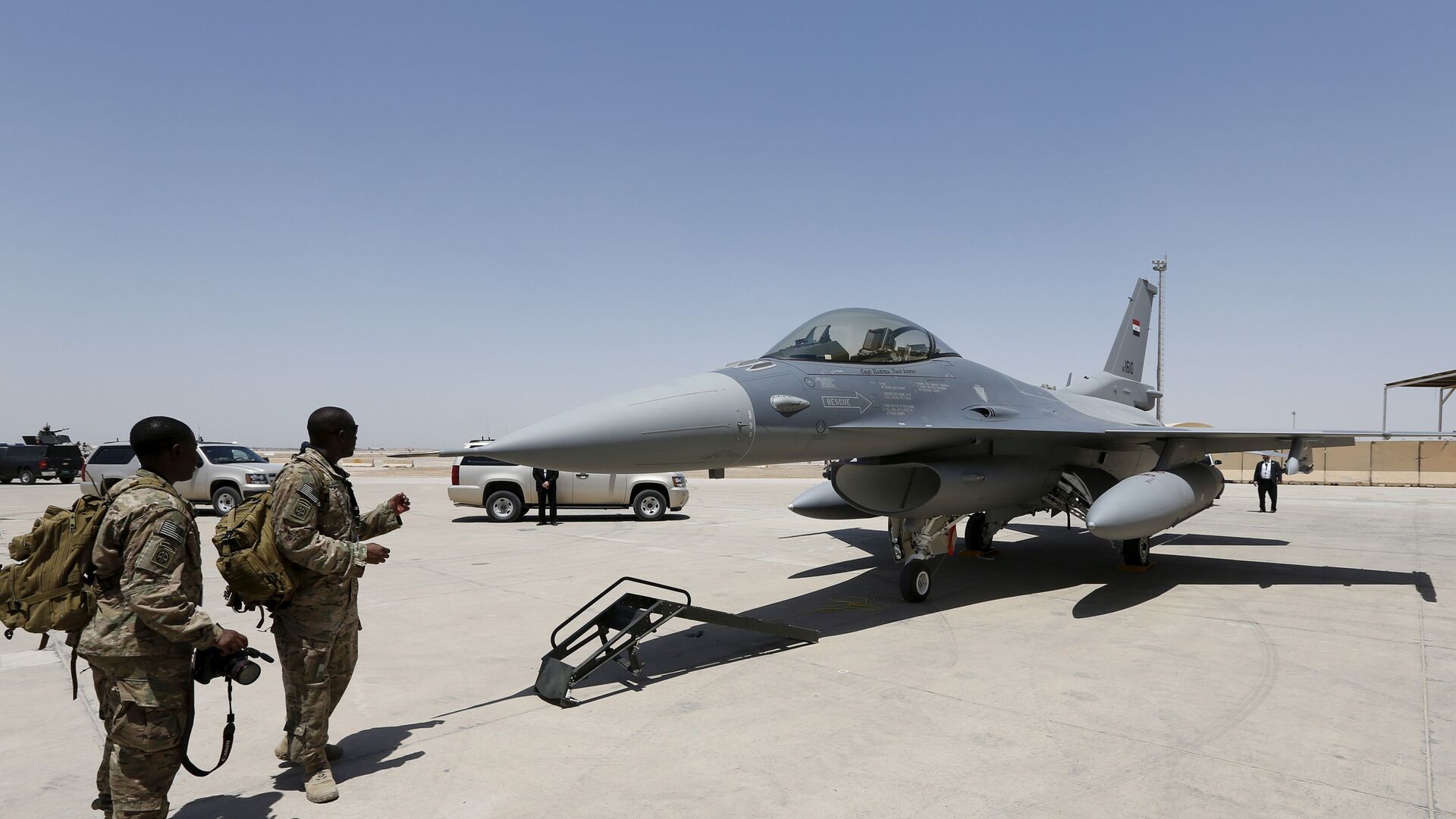
© REUTERS / Thaier Al-Sudani
Subscribe
US President Joe Biden hosted Iraqi Prime minister Mustafa al-Kadhimi at the White House on Monday. In a joint statement released after their talks, officials indicated that Washington agreed to remove all combat troops from Iraq by 31 December 2021, with remaining forces to engage only in a training, advisory and intelligence-sharing capacity.
Harakat Hezbollah al-Nujaba, a Shi’ite paramilitary group that’s part of the Baghdad government-allied Popular Mobilisation Forces (PMF) militias, has expressed dissatisfaction with the Iraq-US agreement on troop withdrawals, and insisted that all US forces must leave the country, including all components of its air force.
“We have no confidence whatsoever in Americans, and do not agree to their presence under any circumstances. We fiercely oppose the US military presence, and demand a complete pullout of American forces,” militia spokesman Nasr al-Shammari said, speaking to Lebanon’s al-Mayadeen television network on Monday night.
The pullout must include the “criminal” US Air Force which controls Iraq’s airspace, al-Shammari said, blaming US air power for a range of crimes he said were committed inside the country.
“The US military’s crimes in Iraq, especially the assassination of [Iranian Quds Force commander] Qasem Soleimani and [PMF deputy chief] Abu Mahdi al-Muhandis, were carried out by its air force,” the spokesman recalled, referring to the January 2020 drone strike assassination of Soleimani and al-Muhandis, which brought Iran and the United States to the brink of war and led Iraq’s parliament to demand the immediate pullout of all US forces.
Al-Shammari went on to allege that the US did nothing to stop the rise of the Daesh (ISIS)* terrorist group, which al-Nujaba and other PMF members fought between 2014 and 2017, and to suggest that Washington played no real role in the terrorists’ defeat.
The spokesman complained that at present, some factions inside Iraq are seeking to use the US troop presence to prop themselves up. “Who can guarantee that American forces in Iraq will not be reinforced while being called ‘advisors’?” he asked. Al-Shammari stressed that a majority of Iraq’s parliament representing a majority of Iraqis had voted to expel US forces.
Ultimately, the spokesman warned that the targeting of US forces in Iraq would continue notwithstanding the “new name” of their mission if they are not pulled out.
Who are al-Nujaba?
In addition to fighting Daesh, Harakat Hezbollah al-Nujaba has taken part in the war in Syria, assisting the Damascus government in its campaign against a broad assortment of jihadist militants. TMembers of the group have indicated a willingness to head to Yemen to join the Houthi movement and their fight against the Saudi-led coalition. In April, a media outlet connected to the militia reported that “unknown resistance forces” had attacked a “Mossad safe house” in northern Iraq, killing multiple “Israeli spies.”
Al-Nujaba is one of the militias targeted by the Biden administration in its strikes in Iraq and Syria this spring. Late last year, the group accused the US of using helicopters to airlift Daesh commanders from Syria to Iraq.
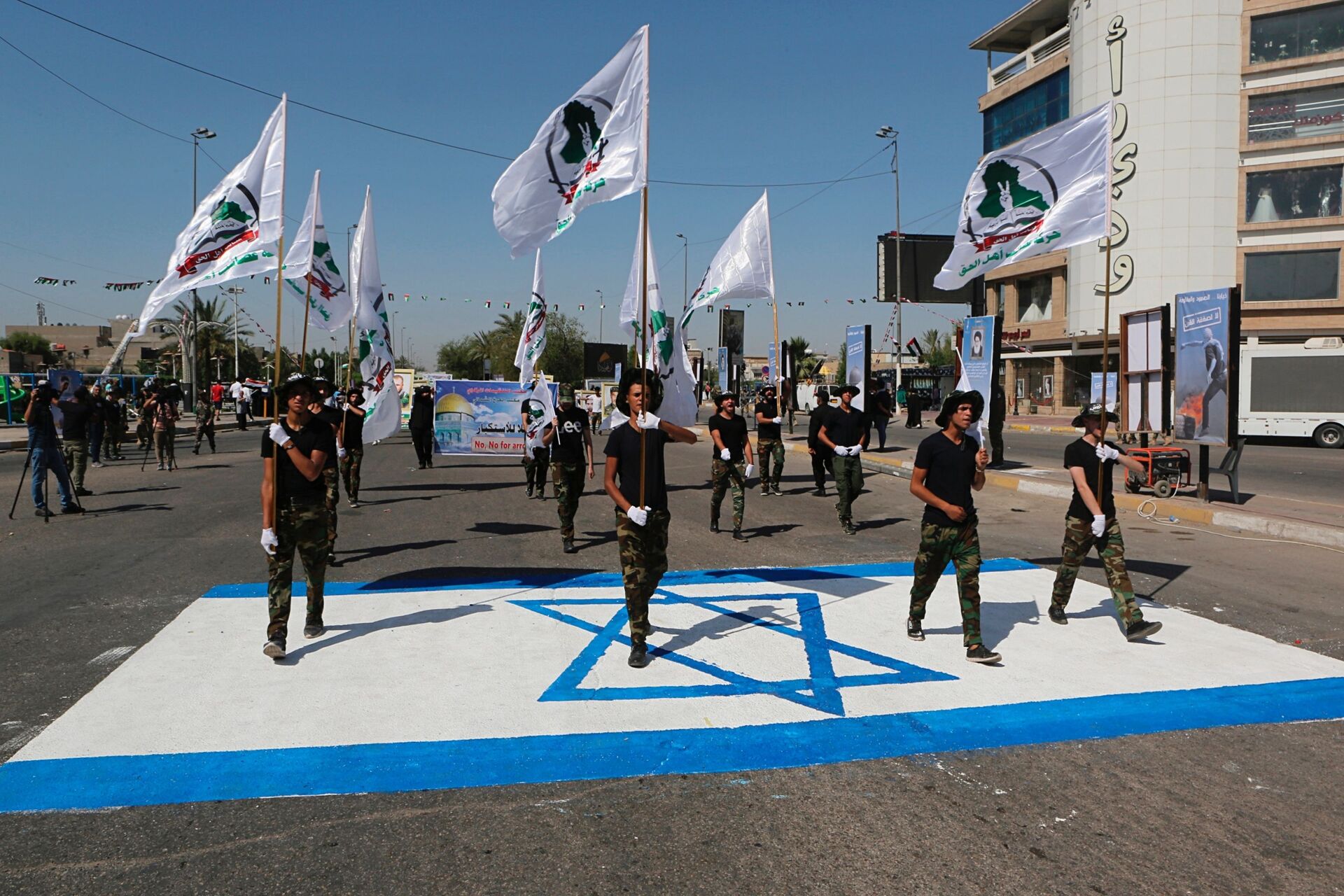
Iraq's Iranian-supported Popular Mobilization Forces militiamen marching over an Israeli flag drawn on the street in Baghdad, May 2019.
© AP Photo / Khalid Mohammed
No More Combat Troops
Iraqi Prime Minister Mustafa al-Kadhimi arrived in Washington on Monday for talks with President Biden about the future of the security relationship between the two countries. “We’re not going to be, by the end of the year, in a combat mission,” Biden told reporters after his meeting with al-Kadhimi. “Our role in Iraq will be…to be available, to continue to train, to assist, to help and to deal with [Daesh] as it arises but we’re not going to be, by the end of the year, in a combat zone,” he added.
After the talks, Iraq and the US issued a joint statement saying that all combat troops would be pulled out by 31 December 2021. “The delegations decided, following recent technical talks, that the security relationship will fully transition to a training, advising, assisting and intelligence-sharing role,” the statement specified. Officials did not specify how many US troops would remain in Iraq in the new year, or which, if any of the "combat troops" would be rebranded as personnel engaged in training and other tasks.
The Trump administration began to withdrawal troops from Iraq and the transfer of major bases back to the Iraqi military in the spring of 2020 after the Soleimani assassination caused Iran to launch over a dozen ballistic missile at US bases, and Iraqi militias to endanger US positions with constant rocket artillery. Between March 2020 and January 2021, US troop numbers dropped from 5,300 to 2,500, and Washington made indications that it may quit Iraq completely by the spring of 2021. Upon stepping into office, President Biden froze these plans, and continued negotiations with the Iraqi side on the future of the security partnership between the two nations.
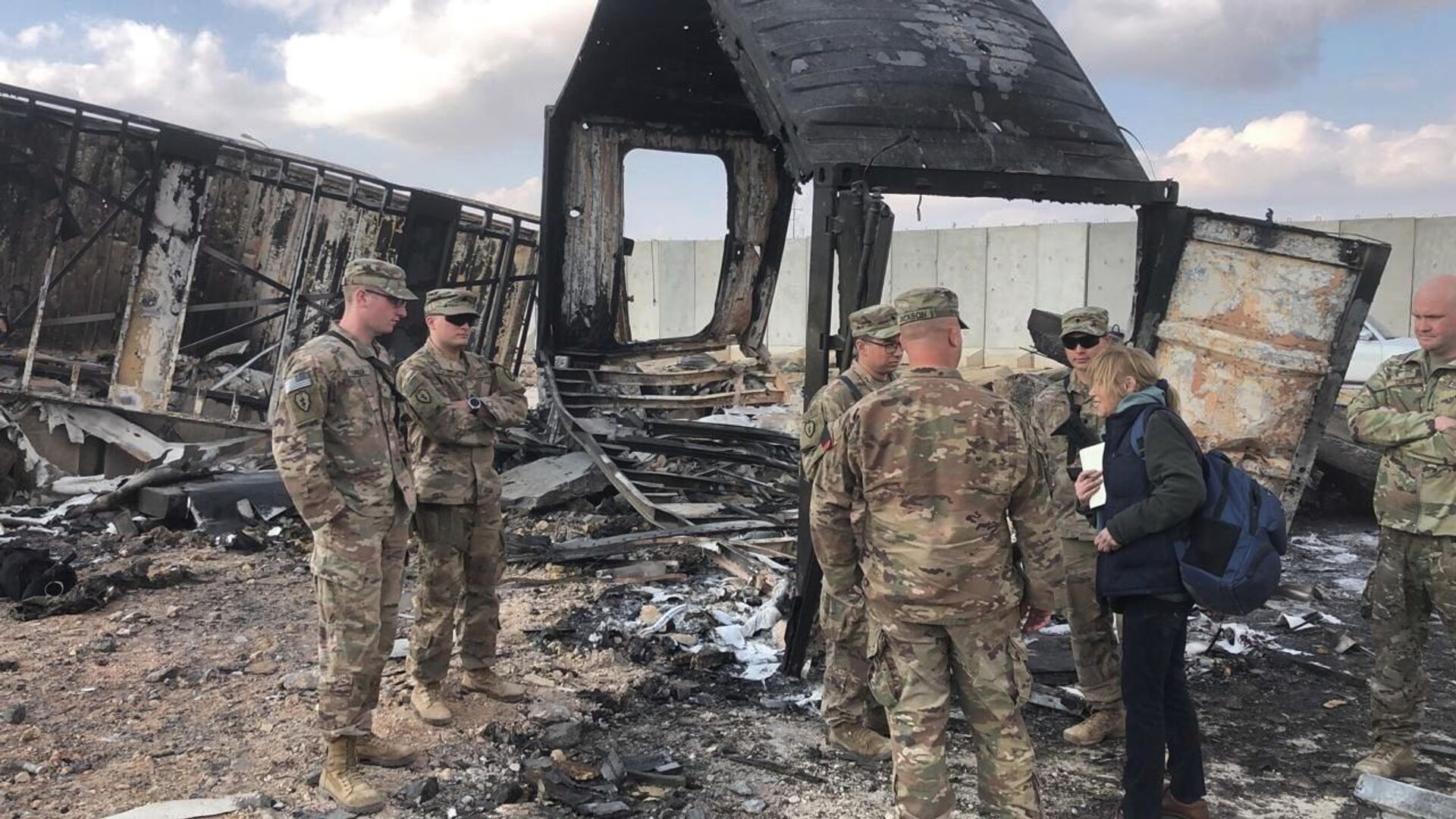
U.S. Soldiers stand amid damage at a site of Iranian bombing at Ain al-Asad air base, in Anbar, Iraq, Monday, Jan. 13, 2020. Ain al-Asad air base was struck by a barrage of Iranian missiles on Wednesday, in retaliation for the U.S. drone strike that killed atop Iranian commander, Gen. Qassem Soleimani, whose killing raised fears of a wider war in the Middle East.
© AP Photo / Qassim Abdul-Zahra
Prime Minister al-Kadhimi has said repeatedly in recent weeks that there was no longer any need for “any foreign combat forces on Iraqi soil,” but specified that Baghdad still wants security assistance from Washington in the form of troop training and other help.
America has had forces in Iraq for fifteen of the past eighteen years, invading in the country in 2003 to topple the government of Saddam Hussein before pulling troops out in 2011. In 2014, amid the rise of Daesh, the US returned to the country, striking the terrorist group with air-dropped bombs and missiles and eventually redeploying combat troops. The Iraqi government and the Trump administration triumphantly announced the jihadist group’s defeat in 2017, but US troops have remained ever since, with the Pentagon justifying their presence by citing the alleged threat still posed by terrorist remnants.
* A terrorist group outlawed in Russia and many other countries.


